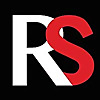ARTICLE AD BOX

Investors are holding their collective breaths over President Donald Trump's sweeping tariffs that experts and consumers alike fear could plunge the economy into a recession.
CNN reporter Matt Egan declared Thursday, "Clearly the president's trade war is freaking out Wall Street. It's sending shockwaves across global markets."
Egan pointed out huge drops in future Thursday morning, with the Dow down 3%, with a nearly 4% drop in the S&P 500, and a nearly 5% drop for the NASDAQ.
After the markets closed on Wednesday, Trump held a Rose Garden "celebration" as he prepared to sign his executive order. "While specifics about enforcement and duration of the new tariffs remain unclear, a document distributed to reporters included a list of 65 countries with calculated reciprocal rates," Newsweek reported.
ALSO READ: 'The Hard Reset': Here's how the U.S. is exporting terrorism around the world
"I guess this answers one question: why the White House waited until after the closing bell for the president to actually roll out his trade plan," Egan said.
Egan added that investors "were bracing for some rough news on tariffs yesterday, but I think this reaction shows that the result was even worse than they had anticipated."
"Look at this!" Egan exclaimed in front of a chart showing the U.S. tariff rate going back 200 years. "And what you can see here is one, it's going straight higher. Fitch ratings says that it's going to be at at least 22% because of these new Trump tariffs — that is the highest level since around 1910, even surpassing Smoot-Hawley, which infamously made the Great Depression even worse."
Egan said JP Morgan financial services issued a note to their clients Wednesday night, "and they say look, if these policies are sustained and they're implemented, it's likely going to push the U.S. and the global economy into recession this year."
Egan also quoted Moody's Analytics chief economist Mark Zandi, saying, "If they follow through, i would buckle up and brace for impact. He said a recession seems more likely than not."
.png)
 1 month ago
3
1 month ago
3








 English (US)
English (US)